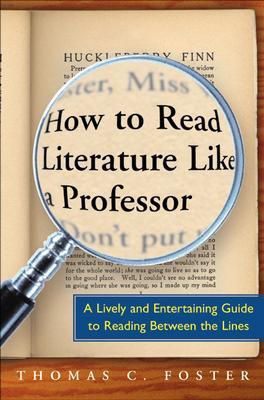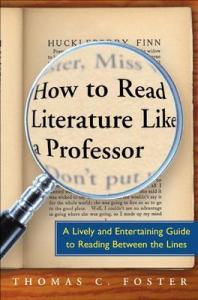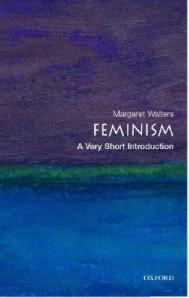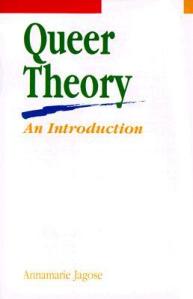Roof Beam Reader
Adam Burgess
Brief Thoughts: 3 Texts on Literary Theory

 How to Read Literature like a Professor by Thomas C. Foster
How to Read Literature like a Professor by Thomas C. Foster
YTD: 07
Goodreads Summary:
What does it mean when a fictional hero takes a journey? Shares a meal? Gets drenched in a sudden rain shower? Often, there is much more going on in a novel or poem than is readily visible on the surface — a symbol, maybe, that remains elusive, or an unexpected twist on a character — and there’s that sneaking suspicion that the deeper meaning of a literary text keeps escaping you.
In this practical and amusing guide to literature, Thomas C. Foster shows how easy and gratifying it is to unlock those hidden truths, and to discover a world where a road leads to a quest; a shared meal may signify a communion; and rain, whether cleansing or destructive, is never just rain. Ranging from major themes to literary models, narrative devices, and form, How to Read Literature Like a Professor is the perfect companion for making your reading experience more enriching, satisfying, and fun.
My Thoughts:
Lots of helpful tips, useful references, and practical advice. It’s certainly not critical theory, but that shouldn’t be what one expects going into this text. It’s a “literature made easy” type of guide, but it’s good for what it is. Easy to read & added plenty of texts to my “to read” list. For English majors early in their programs or for casual/recreational readers who would like to get more from their reading experience, this book could offer some valuable tips. It also added quite a few titles to my wish list!
 Feminism: A Very Short Introduction by Margaret Walters
Feminism: A Very Short Introduction by Margaret Walters
YTD: 08
Goodreads Summary:
“This is a historical account of feminism that looks at the roots of feminism, voting rights, and the liberation of the sixties, and analyzes the current situation of women across Europe, in the United States, and elsewhere in the world, particularly the Third World countries. Walters examines the difficulties and inequities that women still face, more than forty years after the “new wave” of 1960s feminism–difficulties, particularly, in combining domesticity, motherhood and work outside the home. How much have women’s lives really changed? In the West, women still come up against the “glass ceiling” at work, with most earning considerably less than their male counterparts. What are we to make of the now commonplace insistence that feminism deprives men of their rights and dignities? And how does one tackle the issue of female emancipation in different cultural and economic environments–in, for example, Islam, Hinduism, the Middle East, Africa, and the Indian sub-continent?”
My Thoughts:
“I myself have never been able to find out precisely what feminism is. I only know that people call me a feminist whenever I express sentiments that differentiate me from a doormat or a prostitute.” This quote by Rebecca West seems to sum up the history and mentality of Feminism; that is, by virtue of defining it, one practically undermines it. Labels are almost exclusively heteronormative and patriarchal, so to use them is to counter the work of feminist thought. All-in-all, I find the Oxford “Very Short Introductions” extremely helpful, useful, and accessible. Feminism was no exception. Walters outlines the history of feminist thought from the 11th Century and up to modern-day. The major theorists, such as Judith Butler and Mary Wollstonecraft, are given ample attention, as are more obscure writers and historical figures. Walters also includes many of the opposing forces as well as the “in-fighting” between different branches of feminism, all of which helps one to understand the larger theory and its place in time, history, and relation to other schools of thought. Highly recommended for those interested in literary and or feminist theory.
 Queer Theory: An Introduction by Annamarie Jagose
Queer Theory: An Introduction by Annamarie Jagose
YTD: 09
Goodreads Summary:
In Queer Theory: An Introduction, Annamarie Jagose provides a clear and concise explanation of queer theory, tracing it as part of an intriguing history of same-sex love over the last century, from mid-century homophile movements to gay liberation, the women’s movement and lesbian feminism, to the re-appropriation of the term “queer.” Carefully interrogating the arguments of supporters and opponents of queer theory, Jagose suggests that its strength lies in its questioning of the very idea of sexual identities. Blending insights from prominent queer theorists such as Judith Butler and David Halperin, Jagose argues that queer theory’s challenge is to create new ways of thinking, not only about fixed sexual identities such as heterosexual and homosexual, but also about other supposedly essential notions such as “sexuality” and “gender” and even “man” and “woman.”
My Thoughts:
Plenty of useful information and great discussion of various arguments surrounding gay/lesbian studies, feminism, gender, and identity – but the text seemed to be much more about those elements than about Queer Theory, specifically. Granted, there’s a history leading up to Queer Theory & the fact that Queer Theory is ever-changing (by virtue of its being “queer” and therefore resistant to definition, a characteristic it shares with feminism) would make it hard to write an “About Me” book on Queer Theory. Still, I was slightly troubled by the overwhelming amount of time spent on discussing lesbian(ism) and their perpetual outsider status (outside feminism, outside queer theory, outside heteronormativity, etc.), especially the arguments which made homosexual (or gay, or queer, depending on whom is identifying as what) men the greatest “enemy” to the lesbian woman. Those arguments were not the author’s (Jagose) but there was much attention paid to them by her. And I realize I’ve littered this response with pronouns and descriptors galore, which means I’m an enemy of the queer and the feminist schools, for sure.
I’m particularly interested in How to Read Literature Like a Professor. Books about books…my fave!
LikeLike
I’ve also got How to Read Novels like a Professor, by the same author. I plan to read it in the next few weeks. 🙂
LikeLike
Oh, you and your ridiculously intriguing non-fiction recs. Are you trying to make my wallet even thinner? These all sound interesting, and I added two out of three to my TBR list. I hope you’re happy. You win.
(Disclaimer: a distinct lack of sleep and coffee might have turned me into a bit of a drama queen. Approach at your own risk).
LikeLike
Haha Well, which two?!
LikeLike
The first two. One appealed to my inner literature student, the other to my inner feminist. The last one does seem interesting, but at the moment queer history is not one of my main interests and I’m trying to restrict the list of books I add to my TBR pile to the ones I know I will devour. The list is long enough as it is.
LikeLike
Ah, I could end up with any one of these on my reading list! The one by Foster is especially appealing, though. By the end of my academic career (read: never…) I’m hoping to have a Ph.D in English, and these kind of books excite me. It’s only recently I decided to commit to getting my B.A. in English, and even that was a long time coming!
Thanks for keeping such a comprehensive blog. I was totally floored when I realized just how many book-passionate people are creating things like this.
LikeLike
I love Walters’ quote “I myself have never been able to find out precisely what feminism is. I only know that people call me a feminist whenever I express sentiments that differentiate me from a doormat or a prostitute.”
I think it applies to women and girls nowadays. God forbid us to stand for ourselves or criticize the assumptions the rest of the world has!
LikeLike
Pingback: A Successful Poetry Month | Roof Beam Reader